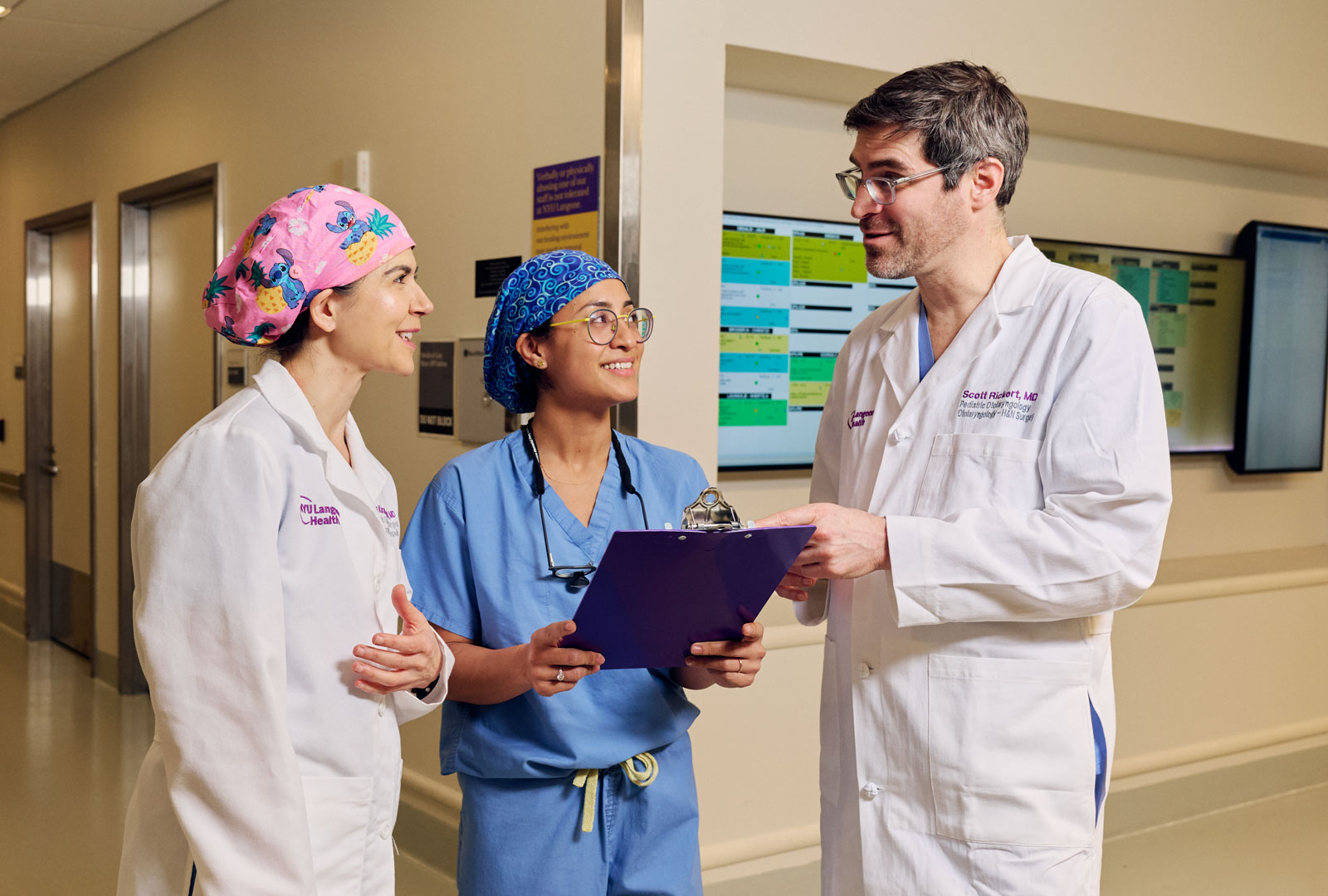Main content
We use cookies and similar tools to give you the best website experience. By using our site, you accept our Websites Privacy Policy.
You and your child may be nervous and full of questions about a planned surgical procedure. At Hassenfeld Children’s Hospital at NYU Langone, we encourage parents, as well as children, to ask questions and be well informed.
We perform surgical procedures at various Hassenfeld Children’s Hospital locations. Please confirm the location of your child’s surgery. Some surgeries require an overnight stay. Others are done on an outpatient basis, meaning your child can go home that same day.
Visitor Guidelines
In response to the spread of COVID-19 in New York, please review our updated information about visitor access to our hospitals, doctor’s offices, and other patient care areas.
If the procedure requires an overnight stay, there are items you should pack for your child and for yourself. We also offer advice on what to expect during the hospital stay and after the hospital stay. Information is also available in our Welcome Book.
To help your child understand what to expect on the day of surgery, such as changing into hospital pajamas, checking vital signs, and receiving anesthesia, we offer a video featuring PJ the Puppet talking with one of our child life specialists about how to ask questions and express emotions about an upcoming procedure.

Your child’s surgeon can help you better understand your child’s procedure. Some questions to ask include the following:
When you have the answers to these questions, you are better equipped with the information you need to discuss the procedure with your child.
Most surgeries require complete sedation. Let your child know that this means he or she is completely asleep and cannot hear, see, or feel anything that happens during surgery. Young children may first be sedated through a mask, followed by an intravenous (IV) line. Older children typically receive an IV line without sedation.
Our board-certified pediatric anesthesiologists make sure that the anesthesia medicine your child receives is safe and appropriate for his or her needs. The type of anesthesia used for your child is based on other medications he or she takes, medical history, and weight. Your child is continuously monitored by the anesthesiologist throughout the procedure, and your child’s safety is our highest priority.
A nurse calls you a day before your child’s scheduled surgery. He or she tells you exactly where to go for the procedure and what time to arrive. Please give yourself enough travel time to arrive promptly.

Peace of Mind Hotline
For information on how to talk to your child about his or her surgery, please email peaceofmind@nyumc.org or call 212-263-1100.
Details on what your child can eat and drink are given during this call. It’s very important to follow these guidelines. Having food in the stomach can cause nausea and vomiting. If your child is on any medications, the nurse lets you know which ones can be taken the morning of the surgery.
We also want to know if your child has any special needs we should be aware of. This can include any phobias or bad experiences they had with previous surgeries or medical procedures. This information is written down on your child’s chart, and our child life specialists are alerted if your child might need special attention.
When you arrive at the hospital or surgery center, your child will undress and put on a hospital gown. Children must remove all jewelry, including piercings. The surgeon, nurse, and anesthesiologist come to meet with you.
Parents often ask if they can accompany their children to surgery. This is up to the anesthesiologist, and the answer is based on many different factors. In situations when this is possible, a child life specialist or nurse liaison escorts you into the operating room. You can hold your child’s hand until he or she falls asleep, and then you are taken to a waiting area.
While you wait, we keep you informed about the surgery’s progress and when you can expect it to be finished. When the surgery is over, your child is moved to the post-anesthesia care unit (PACU). The nurse brings you to your child’s bedside so you can be there when he or she wakes up.

We can help you find a Hassenfeld Children’s Hospital doctor.
Call 646-929-7970
or
browse our specialists.